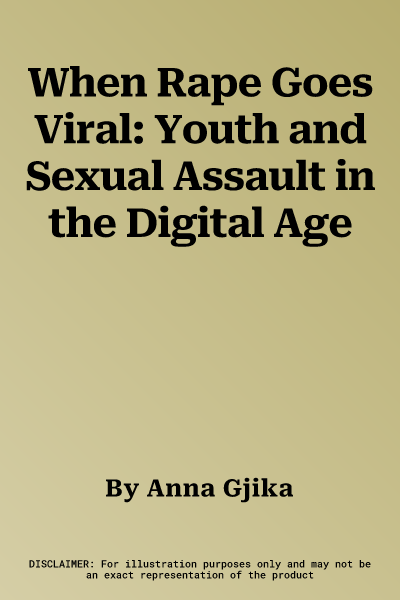Anna Gjika
(Author)When Rape Goes Viral: Youth and Sexual Assault in the Digital AgePaperback, 5 December 2023

Temporarily out of stock
Free Delivery
Cash on Delivery
15 Days
Free Returns
Secure Checkout

Print Length
210 pages
Language
English
Publisher
University of California Press
Date Published
5 Dec 2023
ISBN-10
0520391047
ISBN-13
9780520391048
Description
Product Details
Author:
Book Format:
Paperback
Country of Origin:
US
Date Published:
5 December 2023
ISBN-10:
0520391047
ISBN-13:
9780520391048
Language:
English
Pages:
210
Publisher: